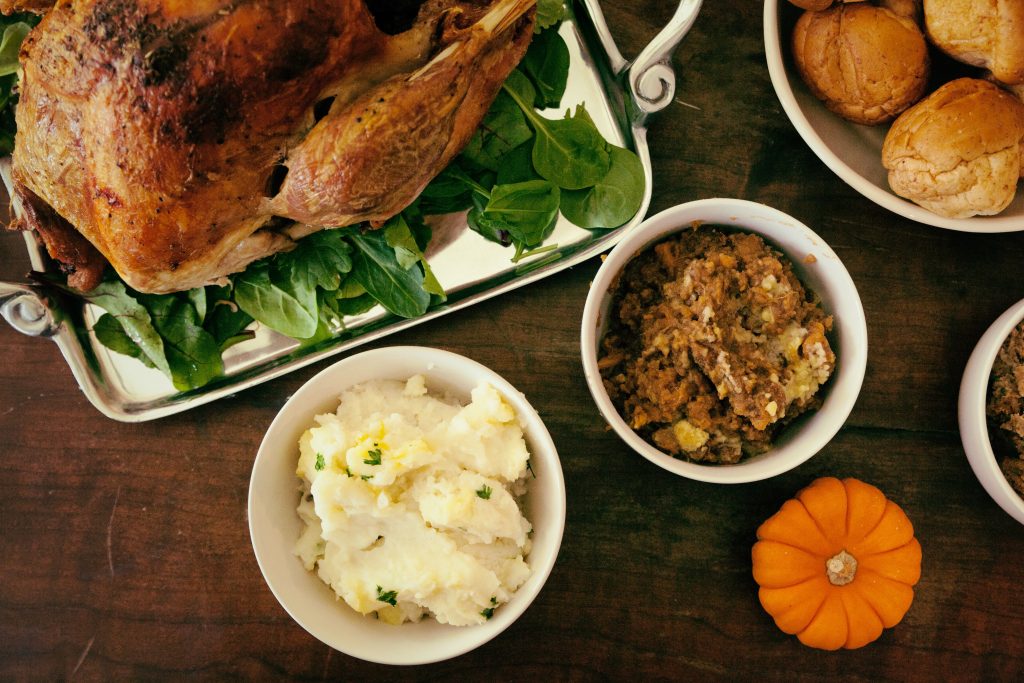As soon as we flip our calendars from October to November, it feels as though the holidays jump out like a proverbial Jack-in-the-Box. Some of us scream in terror, recreating Shelley Duvall’s famous scene in “The Shining.” Our mouths are agape in terror as we hold a butcher’s knife in our hand and the holidays scream, “Here’s Johnny!”
For the rest of us, the holidays may bring a peaceful serenity. This can mean time with family and friends, lots and lots of comfort food, and of course all of the cinematic holiday classics like “Mean Girls” and “Die Hard.” Either way, we should understand, as we lose ourselves in a mental maze of seasonal tasks or dance freely to “Jingle Bell Rock,” that understanding and being prepared for holiday stress is essential, especially in 2020.
According to a survey done by the National Alliance on Mental Illness (NAMI), roughly 64% of American individuals diagnosed with a mental illness say the holidays make their condition worse. This heightened number is attributed to many facets. The survey also documents that some 68% of the surveyed individuals feel financially strained, 66% experience loneliness, 63% feel too much pressure, 57% deal with unrealistic expectations, and 50% were unable to spend time with loved ones.
What these findings lead to is an understanding that, similarly to the dress that swept the internet in 2015, the exact same holiday experiences can be interpreted as vastly different by different people. A family gathering can be sad due to a lost loved one, or stressful due to high expectations, or relaxing due to vacation or time away from daily responsibilities.
TEN WAYS TO COPE DURING THE HOLIDAYS
The Mayo Clinic released a list of ten ways to cope with anxiety, depression, and stress this holiday season. The list begins with acknowledging your feelings. This may be even more vitally important due to the Covid-19 pandemic. Many of us have lost loved ones this year, thus understanding that sadness may very well be a large part of this season is vital. We also must come to terms with the inability to gather in the same ways as years past.

PHOTO SARAH KILIAN, UNSPLASH
Mayo Clinic also encourages individuals to reach out to others as well as be realistic. This may mean calling our loved ones more frequently or could even be helped by seeking ways to help those in need in the area. Being realistic is also important. In order to keep ourselves, friends, and family safe this year it is most likely that holidays will look different than they have in past years. This is okay, and coming to terms with this reality could greatly improve our headspace.
Fourth on Mayo Clinic’s list is setting aside differences. Learning to accept family members and friends for who they are and what they love can go a long way. This also may mean that certain individuals prefer to be involved more or less in activities and their boundaries, as well as your own, should be taken into account.
It was also found that sticking to a budget can be helpful. According to the National Retail Federation (NRF), Americans spent a total of $730.2 billion during the 2019 holiday season. The NRF projects that Americans plan to spend roughly $997.79 each this year, which equates to about $50 less individually than in 2019. This may be attributed to the high unemployment rate which was 7.9 in September, resulting in the fact that many Americans may not be able to afford their same holiday traditions this year.
Ever-changing rates of coronavirus cases have left many of us used to living in the moment. Plans can change in the blink of an

PHOTO PRO CHURCH MEDIA, UNSPLASH
eye. However, in terms of holidays, Mayo Clinic suggests that we plan ahead in terms of gift purchasing and plans. This will leave less for the last moment, even if our in-person plans change. Along with this, it is suggested that we understand that refusing invites to parties and dinners this season is okay. Keeping ourselves and those close to us safe is of the utmost importance.
Mayo Clinic recommends, at the end of the list, that we should keep up healthy habits, take time for ourselves, and seek professional help if we need it. Sleeping, eating, and exercising regularly can help improve our mental health, as can speaking with a professional. Opposite the data showing heightened mental health issues, it is hopefully a solace that according to the CDC, suicide rates are shown to lessen in December.
Even with this knowledge, it is important to be vigilant with our mental health. Free community health services are offered by HUDA in Detroit, which includes mental health and counseling services. Team Wellness Center also offers a 24-hour suicide hotline as well as services charged on a sliding scale fee, making services affordable to unemployed or underemployed individuals.
Mental health and wellness are important all year long, but there’s something about the crazy-faced, Jack Nicholson holiday proclamation that brings it to the forefront of our minds. This year is different for many of us in a lot of ways, but learning ways to cope with our stress, anxiety, and depression may help us this season, and in many seasons to come.






















